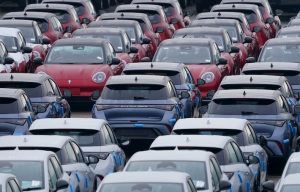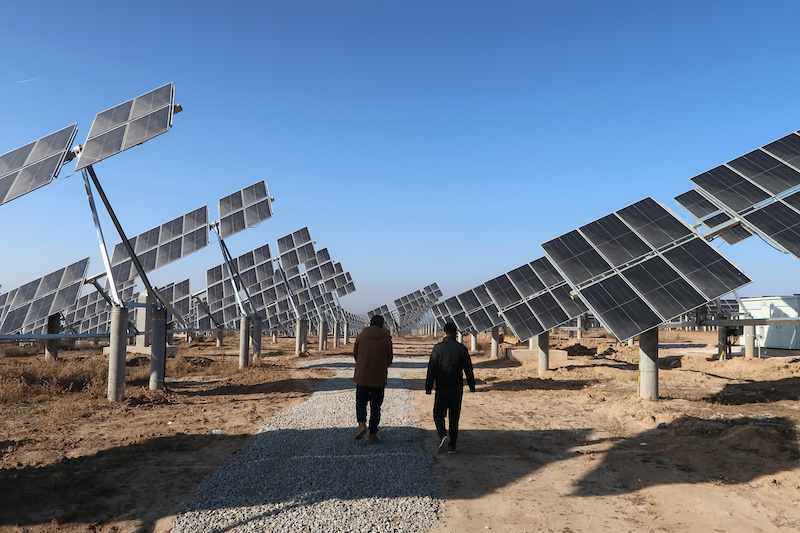Some senior staff at a German consultancy voiced caution this week over an audit their firm performed at a Volkswagen joint-venture in China’s Xinjiang province.
The audit by Loening GmbH – commissioned by the German car giant Volkswagen – found no evidence of forced labour at the plant.
The carmaker, under heavy investor pressure, hired Loening to audit its jointly owned site in Xinjiang, a region in western China where rights groups have documented serious abuses such as mass forced labour in detention camps. Beijing denies any such abuses.
ALSO SEE: China, US EV Sales Lead Charge as Electric Revolution Speeds Up
‘Challenges of data collection in China’
In a statement on December 5 detailing the results of the audit, Loening’s founder and chief executive Markus Loening said his firm had found no signs of forced labour at the plant, a joint venture with SAIC Motor, while noting the challenges of data collection in China.
Later that week, Loening GmbH posted a statement on its LinkedIn page which said that apart from Markus Loening and senior strategy adviser Christian Ewert, as well as two Chinese lawyers, “no other team member participated in, supported or backed this project”.
It added: “Our team has diligently worked to establish ourselves as reputable knowledgeable experts in business and human rights. We remain committed to being guided by international human rights standards in our work.”
On Wednesday, six senior employees shared that statement, with four adding a line to underscore their lack of association with the audit: “I have not supported the acceptance of this project, nor have I been involved in it in any capacity.”
After Reuters reported on the statement on Loening’s LinkedIn page, Markus Loening said that the team had “a spectrum of views” and projects were always carried out by small expert teams – in this case himself and Ewert, supported by two Chinese lawyers.
“My assessment of it as project director and chief executive is public and unchanged,” Loening added.
Some Volkswagen investors reacted cautiously to the results of the audit last week, welcoming that it had been carried out but adding that it could not be a one-off and should be the first of a series of steps to improve transparency in the carmaker’s supply chain in China.
Volkswagen declined to comment.
Sarah Brooks, Amnesty International’s deputy regional director for China, told Radio Free Asia in September that China’s refusal to allow international observers or human rights monitors into Xinjiang “really restricted the ability to independently verify allegations of forced labour”.
- Reuters with additional input and editing by Jim Pollard
ALSO SEE:
Carmakers Focus on Cost-Cutting to Rival Cheap Chinese EVs
Volkswagen Buys $700 Million Xpeng Stake to Lift China EV Share
VW Vows to Stay Ahead as China EV Revolution Gathers Pace
Volkswagen Says ‘Don’t Want to Give Up’ China EV Market
























